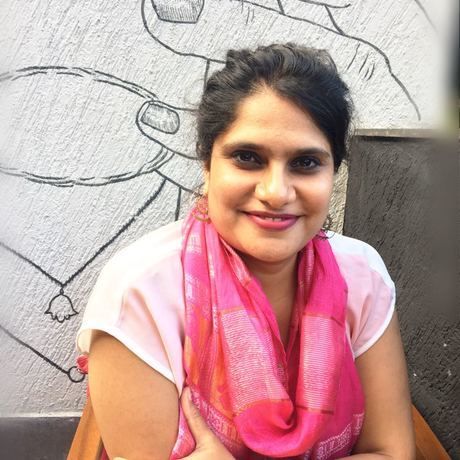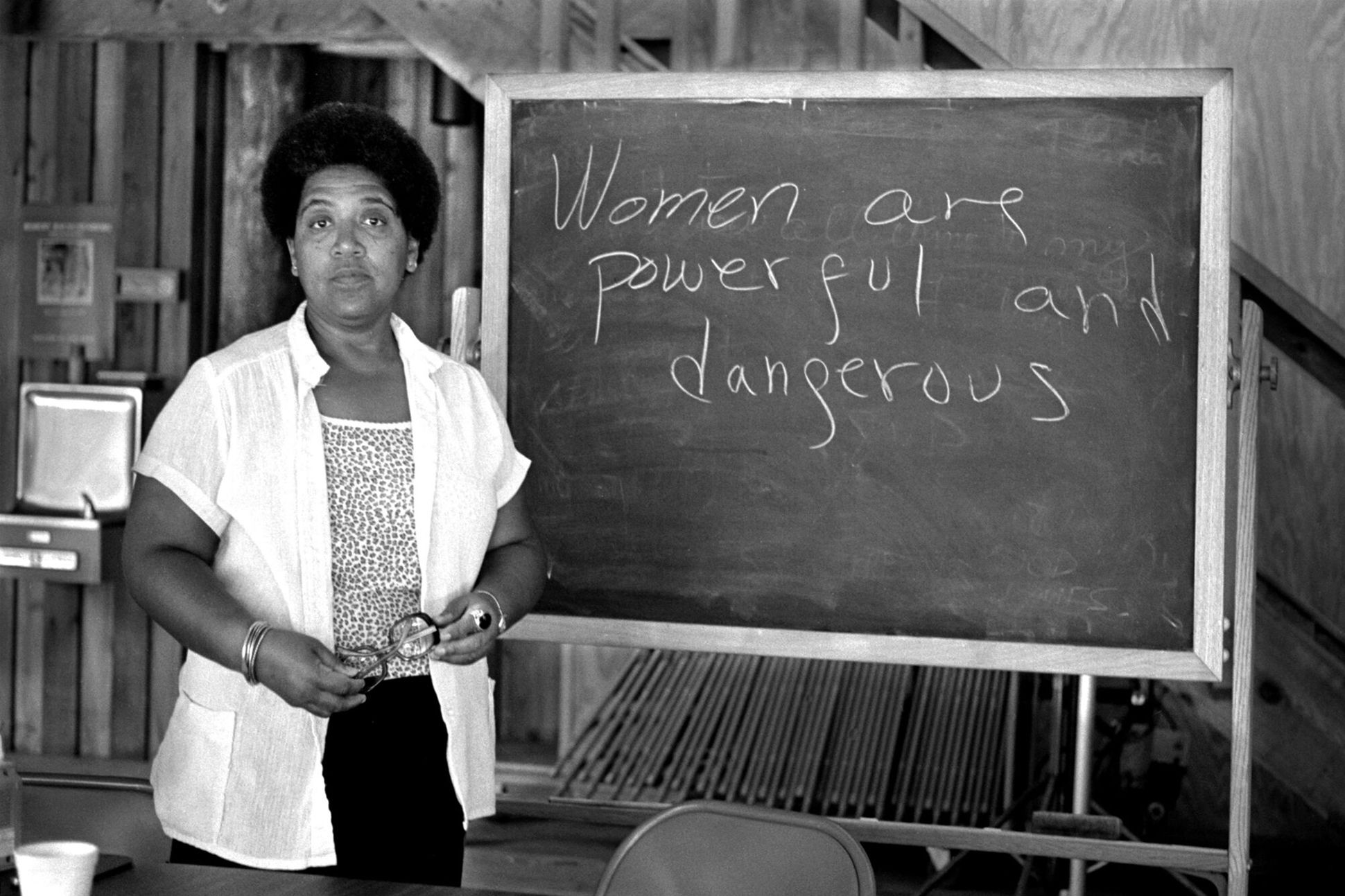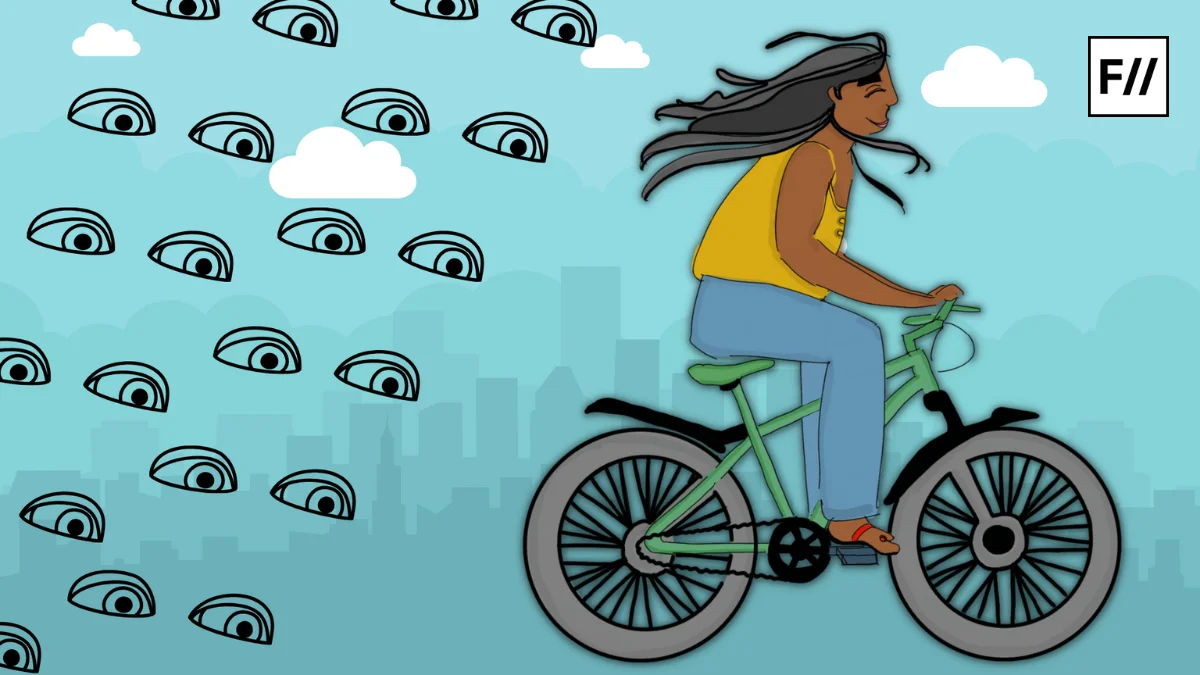Sumaa Tekur, the bestselling author of The Inner Light, is back with another novel this year titled Table for One. As stamped on the cover itself, the book claims to be A Solo Living Manual for the Curious Indian Woman. Having never been a huge fan of non-fiction, I was at first wary of picking up the book although the premise sounded quite interesting.
An autobiographical non-fiction, the book is a journal of the author’s experience of solo living through her thirties, a rarity for women in general, but especially so in a country like India. What surprised me about the book was the clarity of the author’s voice. She is unflinching in her honesty and with numerous anecdotes and instances from her own life, she paints the pros and cons, the ups and downs of solo living. Her writing also has a certain exuberance to it which makes the book less of a self-help manual and more of an optimistic memoir, a story of reclaiming one’s life enough to live to the fullest, as cliche as that sounds.
The concept of solo living is taboo for Indians. Being extremely community-driven, Indians glorify living within the traditional family system. So for a woman to live alone, to voluntarily choose to do so is unheard of. Immediate associations are made with the idea of living alone and Sumaa Tekur elaborates upon them very carefully.
The concept of solo living is taboo for Indians. Being extremely community-driven, Indians glorify living within the traditional family system. So for a woman to live alone, to voluntarily choose to do so is unheard of. Immediate associations are made with the idea of living alone and Sumaa Tekur elaborates upon them very carefully.
Spread across many chapters, she talks about over-inquisitive relatives, friends disrespectful of her boundaries, nosy neighbours, over-friendly workers, and more. All of this boils down to the single idea of society believing a woman living alone without a man in the house to be more easily accessible and an object to pass judgment upon.
Patriarchal society urges women to feel a constant sense of guilt over their personal choices, feeling entitled to hear the justifications for their actions. The author reiterates that although it might be extremely difficult to break through the shame, stigma, and fears associated with solo living, on the other side there awaits a lot of liberation.
The question of boundaries is also extremely important. So often women are made or socially conditioned, to feel guilty about establishing boundaries in close relationships. The fear of losing people, and the guilt of not being immediately available hold many back from asserting their right to boundaries. But Sumaa Tekur reassures us that it should be realised that to live with a heart of love for the people in your life does not mean one cannot take the space or time one might require for oneself. Over-exerting to keep those relationships in your life can only make one feel drained and bitter over time.

Patriarchal society urges women to feel a constant sense of guilt over their personal choices, feeling entitled to hear the justifications for their actions. The author reiterates that although it might be extremely difficult to break through the shame, stigma, and fears associated with solo living, on the other side there awaits a lot of liberation. To own your space, to be accountable to no one, to have the power to choose everything from the curtains to what you want for dinner is the freedom that a lot of women crave but never get to have in their lives, so tied up a woman’s self-worth is to the care she provides others.
The book is also adamant about making a distinction between living alone and living in isolation, or alienation from the outside world. The fear that to live alone is to be lonely is a myth crafted by society. One can have numerous social interactions and a boisterous social life while living solo. Being an introvert or an extrovert too has got nothing to do with solo living.
Aside from society, Sumaa Tekur also brings in the question of one’s relationship with oneself. We as human beings are avoidant of being with ourselves in fear of what we might unearth about our own selves. To build a deep spiritual connection with one’s own soul is a necessity. She believes that to know what one truly wants from life, what their passions, desires and goals are, they should be okay with the silence that comes with being their own company.
Aside from society, Sumaa Tekur also brings in the question of one’s relationship with oneself. We as human beings are avoidant of being with ourselves in fear of what we might unearth about our own selves. To build a deep spiritual connection with one’s own soul is a necessity. She believes that to know what one truly wants from life, what their passions, desires and goals are, they should be okay with the silence that comes with being their own company. A lack of distractions and an absence of people to watch us can lead to superior knowledge of ourselves. Who we truly are when there is no one looking.
By living alone, Sumaa Tekur could also let go of the gender stereotypes in her own mind and be accountable for her own happiness. It was a learning lesson to look at life, and gender roles, differently than before. Having companionship and being completely dependent on that companionship are distinct situations after all. To take one’s own side, to put oneself first above everything else is the way to hold your own life’s reigns. In conventional households sadly, most women are never given such power over their own lives.
The author doesn’t fail to address certain practical problems of women living alone. Safety issues for women are a big deal. The practice of always having to look over one’s shoulder in fear is a suffering that men would never have to face. Hence, safety measures like emergency nearby contacts, and tools for self-protection are important. You have to go out of your way to make sure you are safe and protected in your home. Another important idea talked about in the book is the concept of financial independence and death or mortality.
Finances in Indian households are mostly managed by men. The blanket security of having a spouse is an illusion according to Tekur. Death is inevitable and god forbid a time might come when one has to be alone without anyone by their side. Knowing how to manage your own finances is, therefore, a life skill everyone must know. Financial independence also opens a lot of doors for women. It gives one control and power. Tekur is well aware that it is because she is financially stable and secure, unlike most women, that she is able to live her life on her own terms.
Planning for old age is a necessity for everyone, whether with or without a child. The fear that most women are fed with that they would forever be lonely with no one to take care of them when they are old if they do not marry and have a child is something that Tekur completely blows away. Such fears according to her are normal to all human beings and not specific to women choosing to live alone. Circumstances can lead married women with children to face similar situations.
The idea of dependency is abhorrent to Tekur and although I personally believe depending on people you love is only natural, complete dependency where you fall apart without company is not ideal. The book champions the cause of unconventional living and shows that unconventional living too can lead to happiness for women and one does not always need to subscribe to tradition in order to live a good life.
Learning to unburden society’s expectations is essential to be free. While that does not mean berating Indian culture in the name of taking on Western ideas, it does mean that choosing what’s best for oneself is the appropriate thing to do. This book is a strong assertion of women’s autonomy and an eye-opener as to why all women should have financial independence. Anyone wanting to deep dive into society, gender issues and the concept of self-discovery would find this book perfectly suited to their taste.
About the author(s)
Sayeri Biswas recently graduated with a bachelor’s degree in English from St. Xavier’s College, Kolkata. Whether it’s philosophically
contemplating life or gushing about the most recent book/series she has indulged in, she is always up for a deep conversation. Literature is the great love of her life, and in the future, she hopes to continue talking about all art forms as passionately as she thinks
about them.




